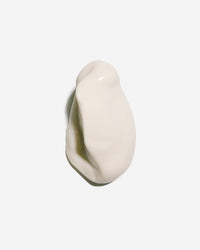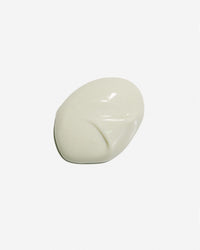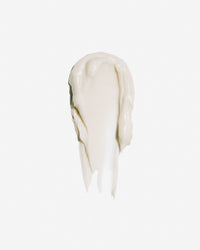Dr. Sylvie Peres, dermatologist and co-founder of Alaena, shares her tips for finding a gentle and natural beauty routine that works for you.
What is sensitive skin and what are the triggers?
Sensitive skin corresponds to a slightly altered barrier function and therefore reacts to stimuli that normally have no effect. We could also say intolerant , reactive. Triggering factors are stress, emotion, the menstrual cycle, but also UV radiation, heat, cold, wind, variations in temperature, dryness or humidity, friction, cosmetics, spicy food, pollution... this affects women more often than men and white and thin skin, but all skin types can be affected.

What are your tips for treating sensitive skin?
Dr. Sylvie Peres : To soothe sensitive skin, you'll need to combat the triggers listed above. To do this, adopt a few simple lifestyle rules:
-
First rule of common sense: quit smoking
-
Protect yourself from outdoor pollution as much as possible, but especially indoor pollution by airing your home for at least 10 minutes a day.
-
Protect yourself from extreme weather conditions (cold, heat, sun)
-
Check the humidity in your home, but also in your workplace
-
Stay well hydrated by drinking 1.5 liters of water per day. Be careful, tea, a diuretic, does not count.
 What type of diet should you favor when you have sensitive, reactive skin?
What type of diet should you favor when you have sensitive, reactive skin?
Dr. Sylvie Peres : The skin must be considered as a whole, and diet plays an important role in the quality of your skin.
We try to eat 5 organic and seasonal fruits and vegetables at each meal for maximum antioxidants, the "little tools" for the proper functioning of our cells.
We take care of our microbiota
Our skin and gut are home to billions of bacteria that we're just beginning to understand. The role of the microbiota is important for our health. Recent studies have shown the link between the microbiota and the brain through the secretion of neurotransmitters. The microbiota is believed to be actively involved in managing our emotions, pain control, thermoregulation, and sleep cycles. Your flora will be preserved thanks to seasonal and varied organic fruits and vegetables and thanks to a supply of sprouted seeds, fermented products, and legumes soaked 24 hours before cooking. These are prebiotics; they nourish the bacteria in your microbiota. Don't hesitate to take probiotics as a supplement.
We choose a balanced intake of omega 3 - 6 - 9
Each oil has a unique composition that combines varying levels of fatty acids with other so-called minor components, but whose role is not negligible. It is therefore important to vary the vegetable oils in your diet. Olive oil, but also argan oil, walnut oil and avocado oil are rich in omega 9. Wheat germ and hemp oils are rich in omega 6. For an intake of omega 3, choose chia seed oil, flax, camelina, rapeseed and soybean, but also oils from oily fish (mackerel, sardine, herring). In addition to maintaining the elasticity of the skin, they are largely involved in anti-inflammatory processes, they reduce redness and calm irritations .
We fight against limescale
While drinking hard or lime-rich water is not dangerous for your health, it can cause irritation, itching and dermatological problems for your skin and scalp. Depending on the nature of the soil in your region, you will be faced with water that is more or less hard. Water hardness is expressed in French degrees (°f): 1°f is equivalent to 10 mg of lime per liter. Up to 15°f (150ml/L), water is said to be soft; above 30°f, water is hard or very hard. Look on the website of the Ministry of Solidarity and Health , you can find out the quality of drinking water by municipality (the limestone level is not measured every time, look at the previous results).

What beauty ritual should you adopt?
Here is the complete beauty ritual that I recommend for sensitive skin:
1 Gentle cleansing that respects the skin
In the shower, cleanse your skin with Mango & Avocado Soap . It is suitable for both face and body. Free from potentially irritating essential oils, it contains mango butter, avocado oil and a high concentration of donkey milk known for its soothing properties. I recommend after showering or rinsing your face, avoiding leaving limescale, aluminum, and chlorine on your face. To do this, spray on Water Mist , a very pure, low-mineral spring water, to soothe and prevent skin from feeling tight. Dry gently. If your skin is sensitive all over your body, you can try installing filters on the shower head, especially if your local water supply is hard.
In the evening, if your skin is made up, do a double cleanse with the Cleansing Oil then the Mango & Avocado Soap. Finish rinsing by spraying the Water Mist.
2 Hydration to nourish and strengthen the skin barrier
For this skin type, hydration is essential to gently nourish, restore the barrier function, and soothe. It is important to avoid any irritants, such as perfumes and essential oils. To formulate the Sensitive Skin Moisturizing Cream, I selected kiwi oil, witch hazel and chamomile floral water with softening properties, as well as bisabolol and provitamin B5 with restorative and soothing properties. Our patented active ingredient based on sprouted seeds helps regenerate the entire skin. Its fine, enveloping texture strengthens the skin barrier and acts as a shield against external aggressions.
| On the delicate area around the eyes, you can apply our Eye Contour . Its very gentle formula without essential oils or perfume helps to moisturize and reduce dark circles, fine lines and puffiness. |  |
3 A simplified ritual
Be careful, the more products you use, the more likely it is that your skin will encounter an irritant that will trigger the symptoms. Finally, don't hesitate to correct certain factors such as erythrosis and couperose with vascular laser treatment. In fact, they are the cause of the burning sensation and flushes that appear in certain circumstances (emotion, heat, alcohol, spicy foods) and can be unpleasant.
What skin reactions can sensitive skin be confused with?
Dr. Sylvie Peres : Indeed, be careful not to confuse sensitive skin with:
- Secondary eczema , which is a sign of an allergy. It occurs as a reaction to a particular product, applied to a specific area, at least initially, and can then become widespread. It can be confirmed by allergy tests.
- atopic or constitutional eczema that begins in infants and can be associated with asthma. These people often have sensitive skin between attacks.
- Seborrheic dermatitis : oily scales in the eyebrows and wings of the nose, is caused by an overgrowth of yeast due to stress and inadequate hygiene measures.
Not sure about your skin type? Take your online skin diagnosis and we'll help you understand your skin's needs and find a personalized skincare routine.




